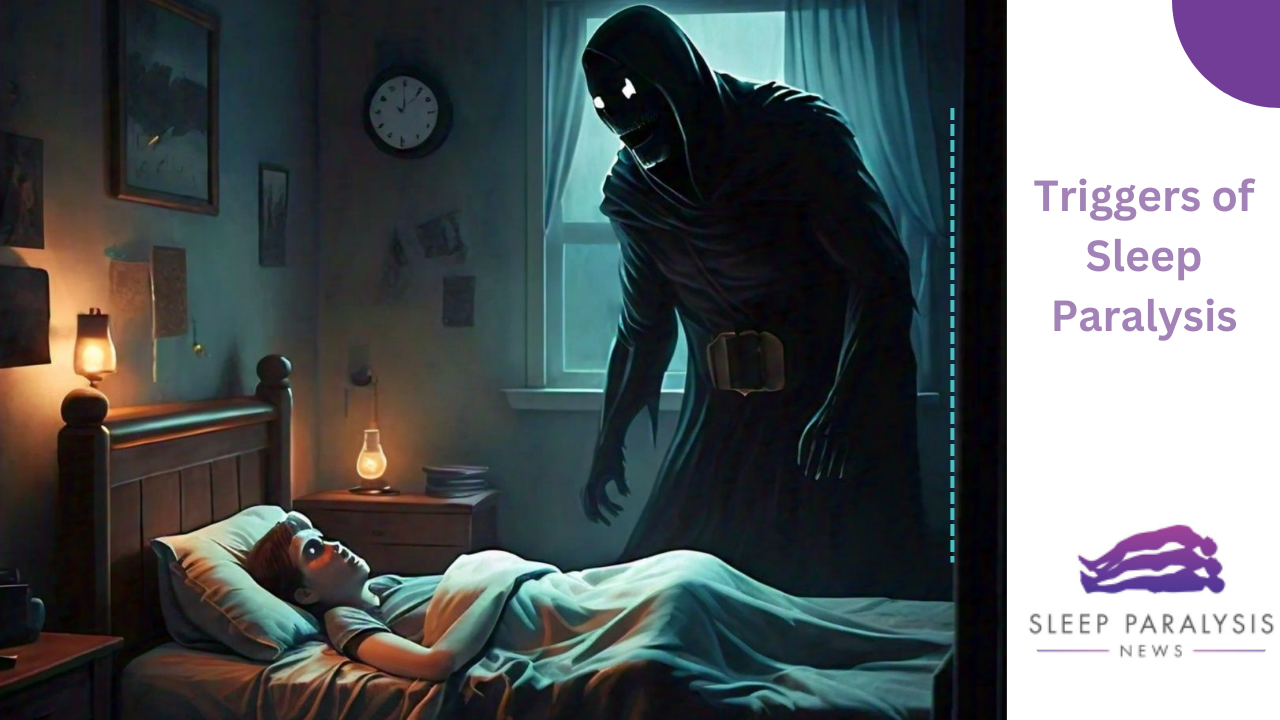Sleep paralysis can occur on its own or be associated with other health issues, such as high blood pressure. Mental health issues, specifically anxiety and post-traumatic stress disorder (PTSD), as well as obstructive sleep apnea.
Sleep paralysis is classified as a REM sleep disorder since it happens during rapid eye movement (REM) sleep. During REM sleep, your eyes move swiftly, your body relaxes, and your muscles remain still. REM sleep occurs when you dream. However, your brain briefly induces atonia, or paralysis, because it is unsafe for you to “act out” your dreams while sleeping.
During sleep paralysis, your mind awakens while your body remains in atonia. As a result, you are unable to move or speak even though you are no longer asleep.
Though sleep paralysis can occur without a known cause, some factors might provoke episodes.
ISP and RISP triggers include the following:
- Other sleep disorders, such as narcolepsy or insomnia.
- Medications
- Substance Use Disorder
- Disrupted sleep patterns, such as jet lag or working night shifts
- Anxiety disorders include social anxiety disorder (extreme fear of being judged by others), obsessive-compulsive disorder, OCD (uncontrollable, intrusive, and pervasive ideas that lead to repetitive activities and behaviors), and generalized anxiety disorder (excessive worry and concern).
- Trauma, often known as post-traumatic stress disorder (PTSD), is a condition that can emerge after experiencing or witnessing a stressful event, series of events, or circumstances.
Triggers of Sleep Paralysis

Certain factors can trigger an episode of sleep paralysis. These include:
- Sleeping in Supine Position: Sleeping on your back can increase the likelihood of experiencing it.
- Irregular Sleep Patterns: Disrupted sleep patterns, such as those caused by jet lag or shift work, can trigger it.
- Stressful Life Events: Stressful life events, such as a death in the family or job loss, can increase the risk of experiencing it.
Dealing with Sleep Paralysis
Sleep paralysis, whether recurrent or not, has no detrimental effects on your health. However, recurrent occurrences can be extremely unpleasant, affecting both your sleep quality and your overall quality of life.
If you suffer recurrent it, consult with a doctor about how to reduce the frequency of episodes and develop coping strategies. In general, the best way to deal with it is to use both prevention and treatment strategies: address any underlying health issues, practice excellent sleep hygiene, and seek therapies that lessen your fear, stress, and worry.
FAQs
Is sleep paralysis bad?
It is not necessarily a terrible thing. It’s a relatively common occurrence, affecting approximately 7.6% of people at some point in their lives. It occurs when you awaken from REM sleep (the stage of sleep in which you dream), but your body remains motionless. This can be terrifying, especially if you are experiencing hallucinations, but it is not hazardous.
It usually lasts a few seconds or minutes, after which you will be able to move and speak normally again. There is no therapy for occasional sleep paralysis, but if it occurs regularly, there are steps you may take to lower your risk, such as getting enough sleep, practicing good sleep hygiene, and controlling stress.
How do you usually get sleep paralysis?
It occurs while the sleep cycle transitions between stages. When you wake up quickly from REM, your brain is awake, but your body is still in REM and unable to move, giving you the sensation of being paralyzed. This episode might last anywhere from a few seconds to one or two minutes.
Who suffers from sleep paralysis?
It usually begins in the adolescent years. It then most commonly occurs between the ages of 20 and 30. It may persist into your later years. Although the paralysis incident may be alarming, it is not a severe medical concern on its own and does not prevent you from getting the sleep you require.
Conclusion
To summarize, it is a common condition that, while terrifying, is usually harmless. It is thought to be caused by a variety of circumstances, including sleep deprivation, irregular sleep cycles, stress, and underlying sleep disorders. Individuals can manage and prevent it by better understanding its causes and triggers. If you have frequent or severe episodes of sleep paralysis, you should seek medical assistance to rule out any underlying sleep disorders.
Have you Ever experienced Sleep Paralysis?

Many people need support and could benefit from Hearing your story
If you Are Interested Send an Email to
Expressing your interest
Find Cyrus on Social Media

Instagram: 12stonesproductions
Linkedin: Cyrus L. Richardson
Youtube:12 Stones Productions
CyFLY:IMDb CyFLY
